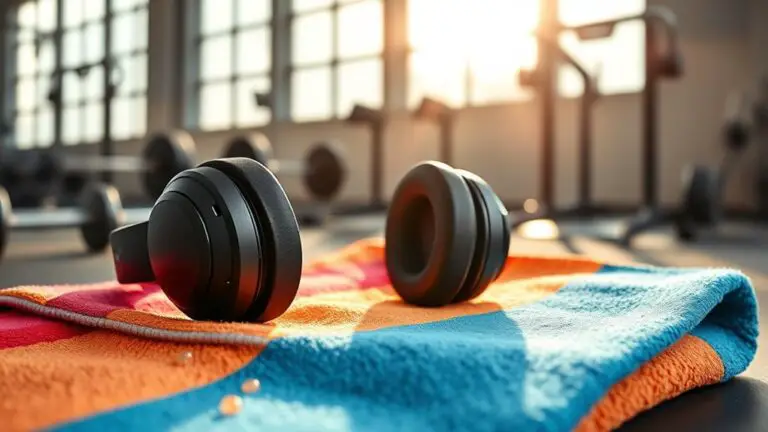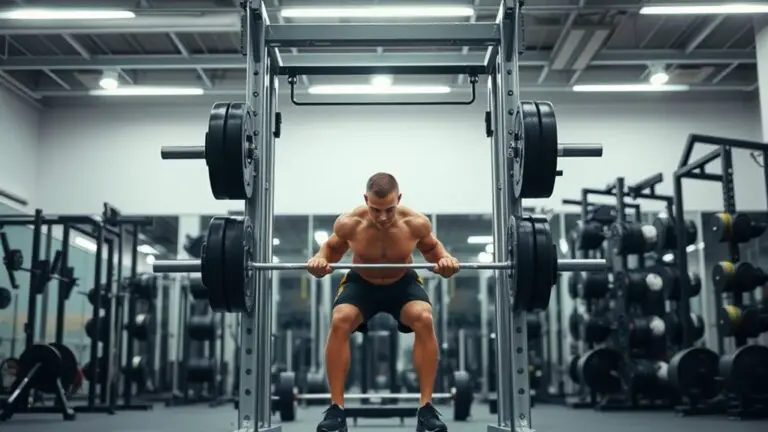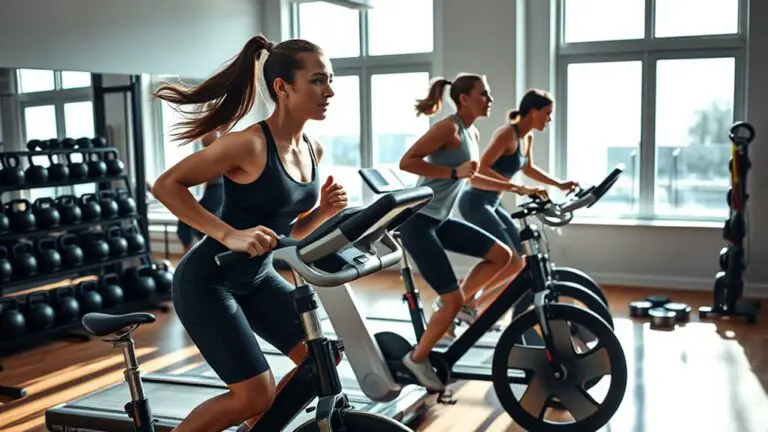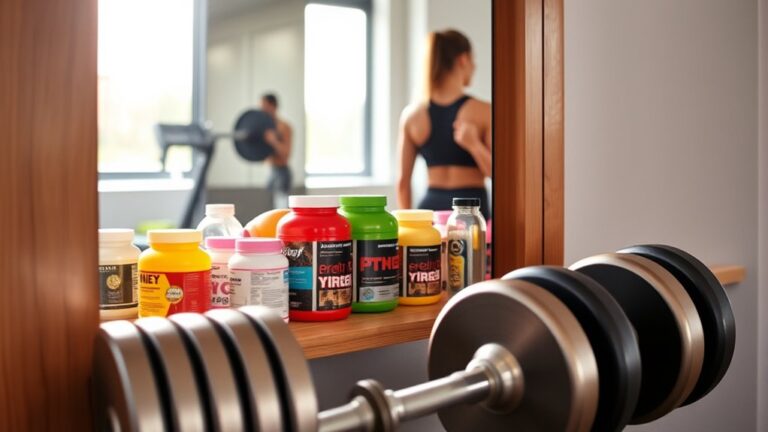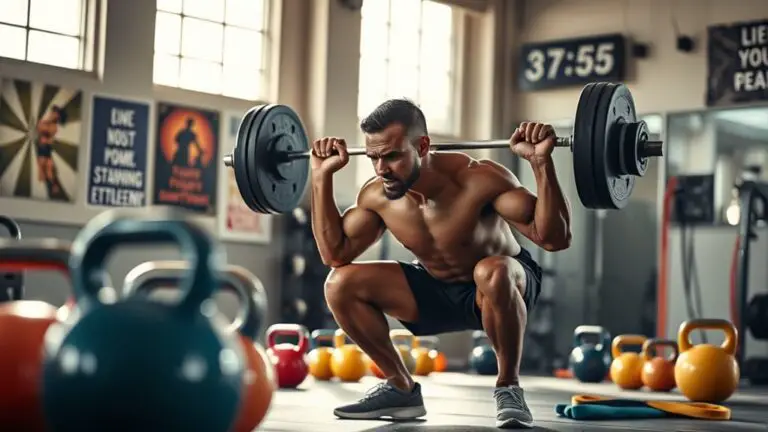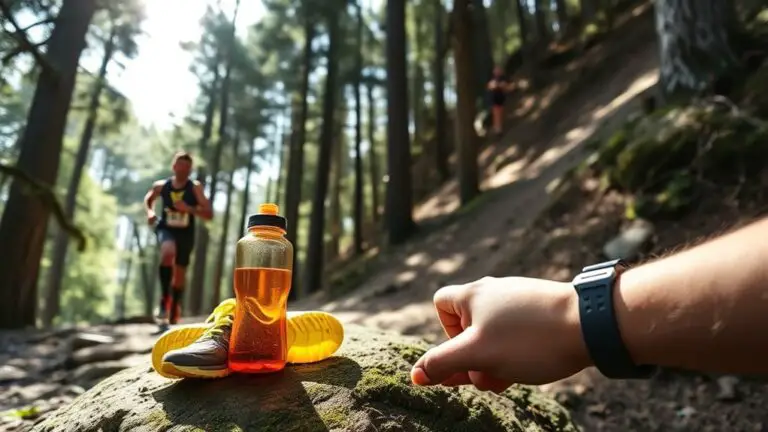The Importance of Staying Hydrated During Gym Workouts
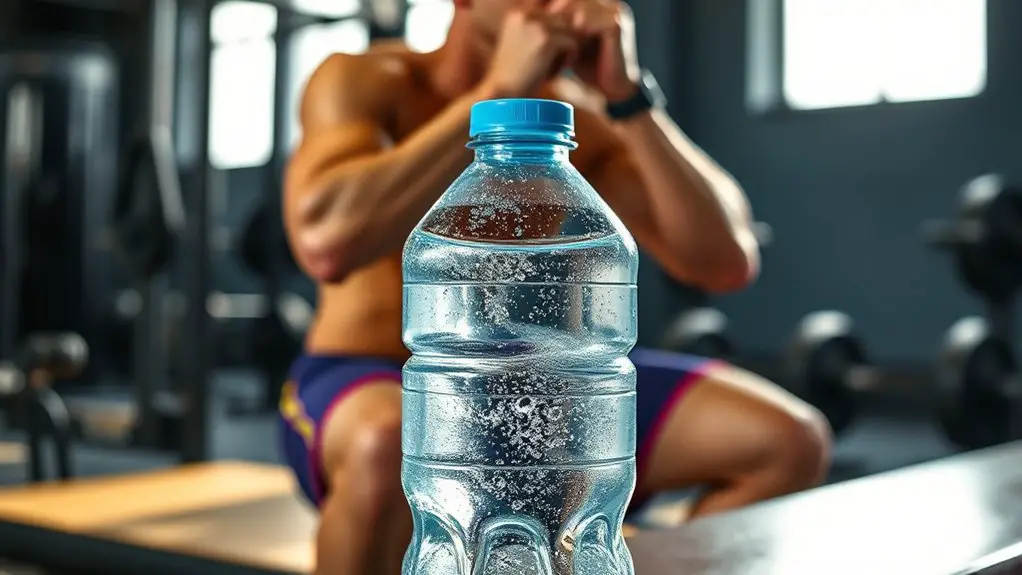
Staying hydrated during gym workouts is essential for your performance and recovery. Water regulates body temperature, maintains energy levels, and helps transport nutrients. Look out for signs of dehydration like dry mouth or dark urine. Aim to drink water before, during, and after your workout to replenish lost fluids and enhance muscle recovery. Consider your individual needs, and remember, proper hydration can maximize your results. There’s much more to discover that can elevate your workout routine even further.
Understanding the Role of Water in Exercise
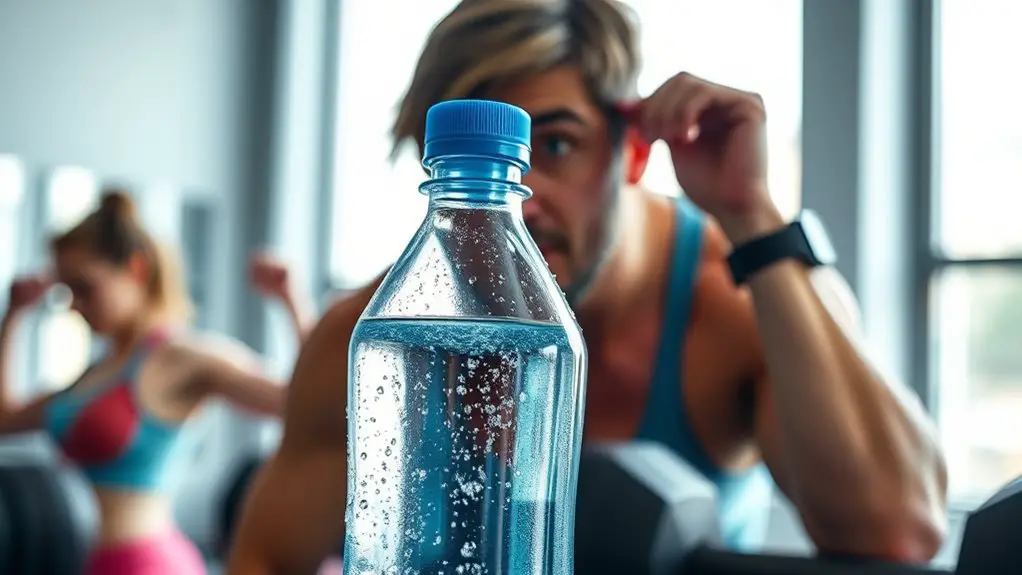
When you’re working out, staying hydrated isn’t just a good idea—it’s essential for your performance and overall health. Water plays an important role in regulating body temperature and facilitating nutrient transport, making it crucial for effective exercise. Proper water absorption helps maintain your energy levels and enhances endurance, allowing you to push through demanding workouts.
Unfortunately, many hydration myths can mislead you. Some believe you only need to drink when you feel thirsty, but by that time, your body may already be dehydrated. It’s also a misconception that any liquid can replace water—while sports drinks can help, plain water remains the best choice for hydration during most workouts.
To maximize your performance, aim to drink water consistently throughout your exercise routine. Understanding the role of water not only helps you achieve better results but also keeps your body functioning at its best. So, don’t underestimate the power of hydration!
Signs of Dehydration to Watch For
Although many people overlook the signs of dehydration, being aware of them can make a significant difference in your workout performance and overall health. One of the first thirst signals you might notice is a dry mouth, which can indicate your body needs fluids. Pay attention to fatigue signs, as feeling unusually tired could suggest you’re not hydrated enough. Dark urine is another clear indicator; if your urine’s color is deep yellow or amber, it’s time to drink up. Dizziness symptoms can also arise when you’re dehydrated, making it harder to focus and maintain balance during your workout. Finally, headache indicators should never be ignored; they can signal that you’re falling short on hydration. By recognizing these signs early on, you can take action to stay hydrated and optimize your gym sessions. Remember, your body works best when it’s well-hydrated!
How Much Water Do You Really Need?
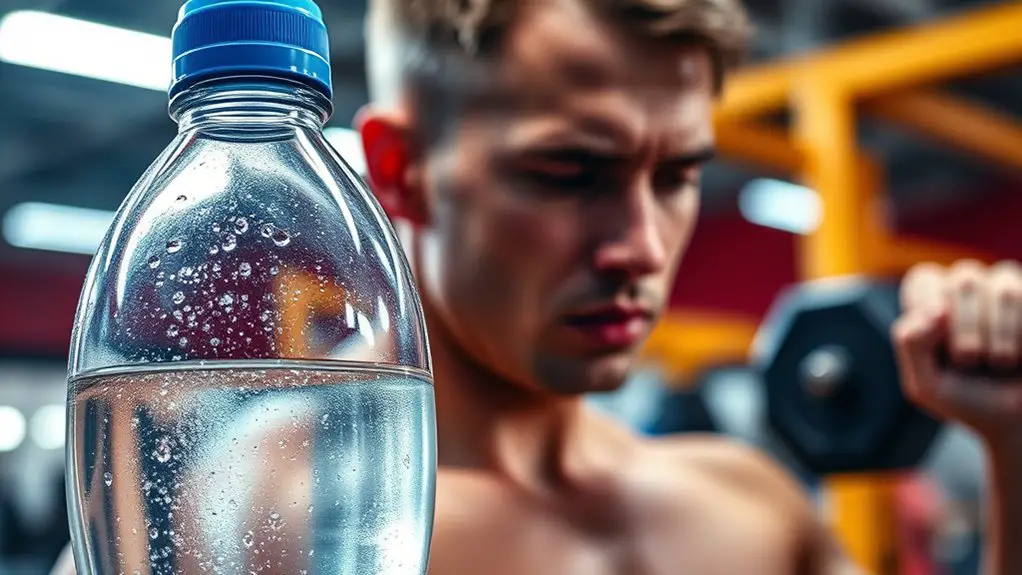
When it comes to hydration, your needs can vary widely based on several factors. Individual hydration requirements, exercise intensity, and even the climate can all influence how much water you should be drinking. Understanding these elements can help you stay properly hydrated and perform at your best during workouts.
Individual Hydration Needs
Understanding your individual hydration needs is essential for optimizing your gym workouts. Personal hydration varies considerably based on individual factors such as age, weight, activity level, and climate. For instance, heavier individuals or those engaging in intense workouts might require more fluids than lighter counterparts. A general guideline is to drink about half your body weight in ounces daily, but you may need to adjust this based on your workouts. Pay attention to your body’s signals—thirst, urine color, and energy levels are key indicators. Remember, staying adequately hydrated can enhance your performance and recovery, so make sure you’re meeting your personal hydration needs tailored to your unique situation.
Exercise Intensity Impact
As you ramp up the intensity of your workouts, your hydration needs can change considerably. Higher intensity levels lead to increased sweat production, which means you’ll need to replenish lost fluids more frequently. During shorter, high-intensity sessions, aim to drink about 7-10 ounces of water every 10-20 minutes. For longer workouts, especially those exceeding an hour, consider incorporating electrolyte-rich beverages to restore lost minerals. Remember, the longer the exercise duration, the more you should hydrate. Listening to your body is essential; signs of dehydration like dizziness or fatigue indicate it’s time to drink more. Staying adequately hydrated not only enhances performance but also aids in recovery, so don’t underestimate the importance of water during intense workouts!
Climate and Environment Factors
Although many people focus on workout intensity, the climate and environment can greatly influence your hydration needs. Factors like temperature and environmental humidity affect how much water you should consume during workouts. High heat and humidity can lead to increased sweat loss, making it essential to adjust your water intake accordingly. Here are some key points to take into account:
- Temperature: Higher temperatures can increase sweat rate, raising your hydration needs.
- Humidity: Increased environmental humidity can hinder sweat evaporation, leading to dehydration.
- Duration: Longer workouts in extreme conditions require more fluids.
- Altitude: Exercising at higher altitudes can increase fluid loss through respiration.
- Individual Factors: Personal sweat rates and fitness levels also play a significant role.
Stay aware of climate effects to guarantee you’re adequately hydrated.
Hydration Strategies for Before Your Workout
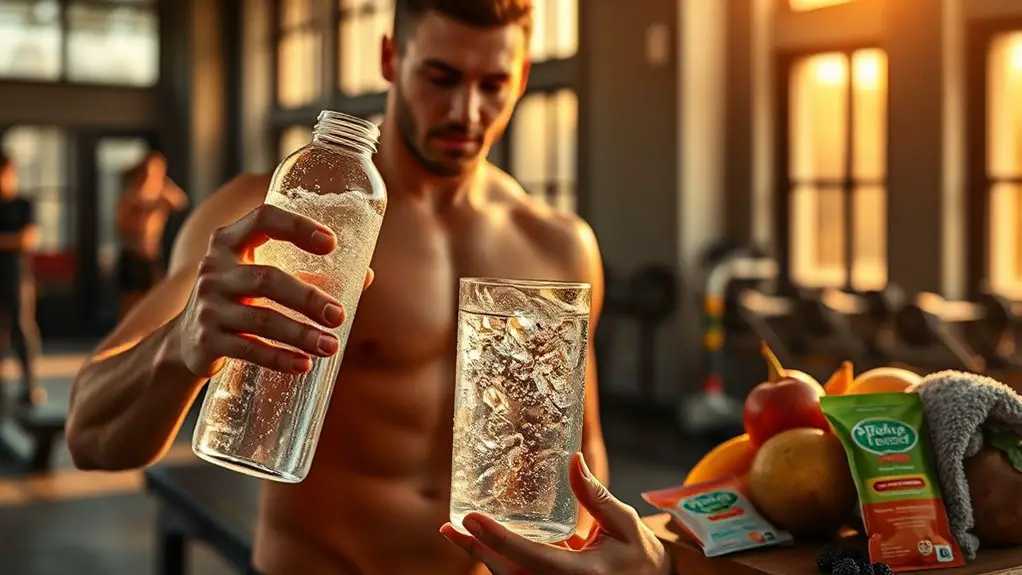
Staying properly hydrated before hitting the gym can make a significant difference in your performance and overall workout experience. Pre workout hydration is essential for optimizing energy levels and enhancing endurance. Aim to drink about 16-20 ounces of water at least two hours before your workout. This gives your body time to absorb the fluids and guarantees you’re adequately hydrated.
Additionally, consider consuming an electrolyte-rich drink if you plan to engage in high-intensity exercises or workout for over an hour. The hydration importance can’t be overstated; even mild dehydration can impair your strength and stamina, leading to a less effective workout.
Lastly, listen to your body. If you feel thirsty, don’t wait until you’re parched—hydrate consistently throughout the day. By prioritizing pre workout hydration, you’ll set yourself up for success and maximize your gym efforts.
Staying Hydrated During Your Workout
While you might be focused on your workout intensity, keeping your hydration levels in check is essential for maintaining peak performance. Staying hydrated during your workout can help you avoid fatigue and maintain focus. Here are some key points to take into account:
- Monitor your water intake: Aim for about 7-10 ounces every 10-20 minutes.
- Pay attention to thirst cues: Don’t wait until you’re thirsty to drink.
- Plan your workout timing: If you’re exercising for over an hour, contemplate a sports drink for added electrolytes.
- Explore various hydration methods: Use water, coconut water, or electrolyte drinks based on your needs.
- Keep a water bottle handy: Having it visible can remind you to drink regularly.
Recovery and Rehydration After Exercise
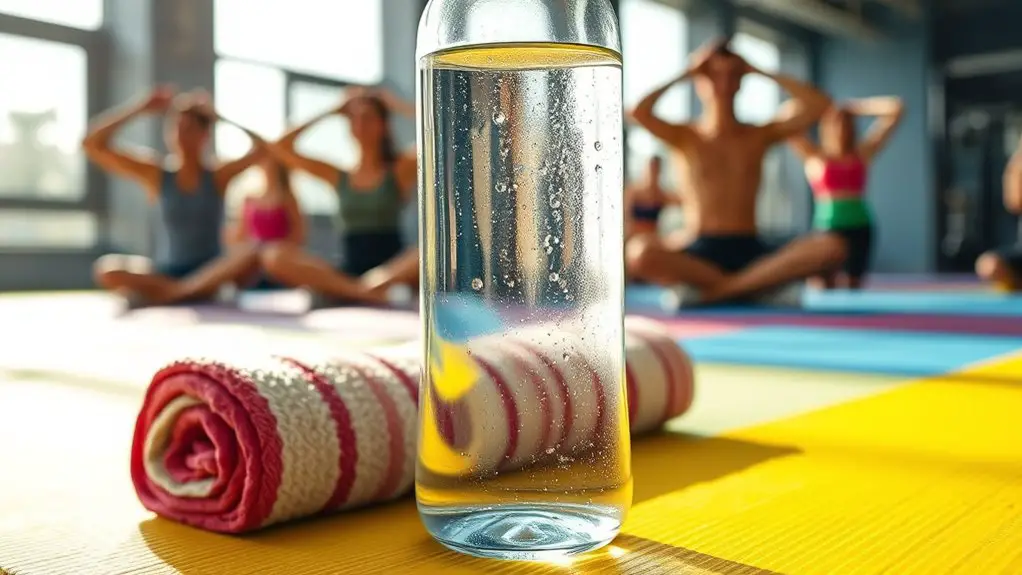
After a workout, rehydration is essential for recovery, and focusing on electrolytes can help restore what you’ve lost through sweat. Timing matters too; drinking fluids soon after exercising can enhance your body’s ability to recover. Implementing effective hydration strategies will not only improve your performance but also support your overall health.
Importance of Electrolytes
Electrolytes play an essential role in your recovery and rehydration after exercise, as they help maintain the balance of fluids in your body and support muscle function. When you sweat, you lose important electrolytes, which can hinder your performance and recovery. Ensuring proper electrolyte balance is critical for maximizing hydration benefits. Here are key electrolytes to focus on:
- Sodium: Helps regulate fluid balance.
- Potassium: Supports muscle contractions and nerve function.
- Calcium: Essential for muscle contraction and recovery.
- Magnesium: Aids in reducing cramps and fatigue.
- Chloride: Works with sodium to maintain hydration.
Incorporating electrolyte-rich foods or drinks post-workout can greatly enhance your rehydration and recovery process, keeping you energized for your next session.
Timing for Rehydration
To optimize your recovery and rehydration after exercise, it’s essential to pay attention to the timing of your fluid intake. Rehydration timing can greatly affect your performance and recovery. Ideally, you should start rehydrating immediately after your workout, replenishing lost fluids within 30 minutes. This is especially important after intense sessions or longer workout intervals. Consuming a mix of water and electrolytes can enhance this process, ensuring your body replaces what it’s lost during exercise. If you wait too long to rehydrate, you might experience prolonged fatigue or decreased muscle recovery. So, make it a habit to drink fluids soon after finishing your workout to keep your body functioning at its best.
Hydration Strategies Post-Workout
Rehydrating effectively after a workout can greatly enhance your recovery and performance. To guarantee ideal recovery, it’s essential to replace lost fluids and electrolytes. Here are some strategies you can implement:
- Drink water immediately: Aim for 16-24 ounces within 30 minutes post-exercise.
- Incorporate electrolyte drinks: Consider beverages that replenish lost salts, especially after intense workouts.
- Pair hydration with post workout snacks: Combine fluids with protein and carbs for better recovery, like a smoothie or yogurt.
- Monitor your urine color: Light yellow indicates proper hydration; darker colors suggest a need for more fluids.
- Set reminders: Use your phone to remind you to drink water at intervals throughout the day.
Following these strategies helps you recover faster and feel your best!
The Impact of Different Types of Beverages
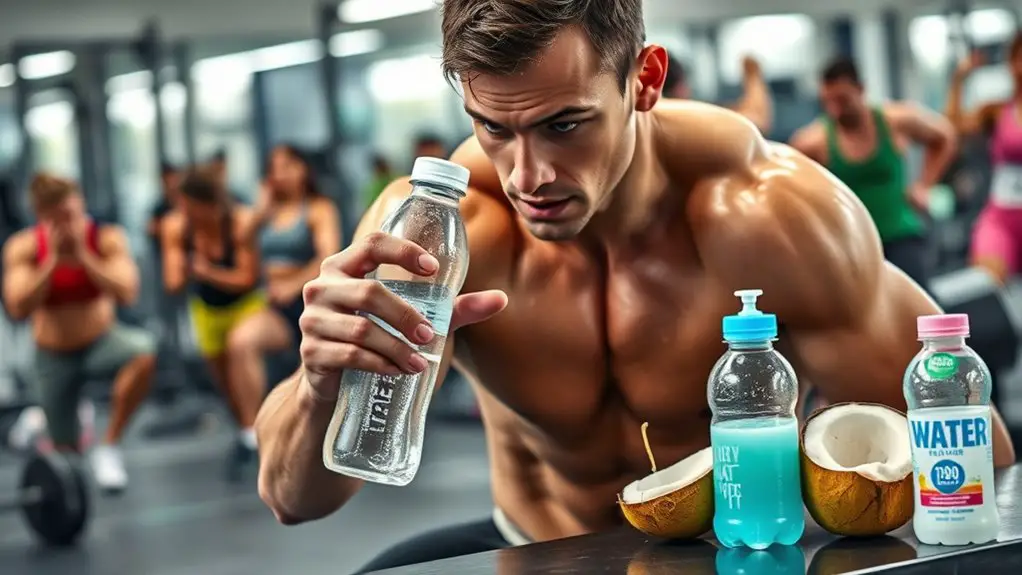
While you might think that any drink will do during your gym workouts, the type of beverage you choose can greatly affect your hydration and performance. Soda consumption, for instance, can lead to dehydration due to its high sugar content and caffeine, both of which may increase your thirst and reduce your overall hydration levels. On the other hand, sports drinks are specifically formulated to replenish electrolytes lost during intense workouts. They often contain sodium and potassium, which can help maintain fluid balance and enhance endurance. However, be cautious with sports drinks, as many also contain added sugars. If you’re exercising for less than an hour, water is usually sufficient for hydration. For longer sessions, carefully consider your beverage choice to guarantee peak performance and recovery. Ultimately, selecting the right drink can make a significant difference in how you feel and perform during your workouts.
Tips for Making Hydration a Habit
Making hydration a habit can greatly enhance your gym performance and overall health. To guarantee you’re consistently drinking enough water, consider these practical tips:
Making hydration a routine is key to boosting gym performance and improving overall health.
- Set hydration reminders on your phone to prompt you every hour.
- Download hydration apps that track your intake and send notifications.
- Carry a reusable water bottle to easily access water throughout the day.
- Flavor your water with fruits or herbs to make it more enjoyable.
- Pair drinking water with daily activities, like having a glass before each meal.
Frequently Asked Questions
Can I Rely on Thirst Alone to Gauge Hydration Needs?
Thirst signals are like a warning light in your car; they indicate potential problems. Relying solely on them for hydration accuracy isn’t enough. It’s wise to regularly drink water, even before you feel thirsty.
Does Caffeine Affect My Hydration Levels During Workouts?
Caffeine consumption can affect your hydration balance, as it’s a mild diuretic. While moderate intake might not greatly dehydrate you, it’s still wise to drink water to maintain ideal hydration during your workouts.
How Does Humidity Impact My Hydration Requirements?
When humidity levels soar, your hydration requirements skyrocket! You’ll need to adapt your hydration strategies, drinking more fluids to combat excessive sweating and prevent dehydration—because nobody wants to feel like a wilted flower during workouts!
Are Electrolyte Drinks Necessary for Every Workout?
You don’t need electrolyte drinks for every workout. For shorter sessions, water’s usually enough. However, if you’re sweating heavily or exercising intensely, timing your hydration with electrolytes can help maintain your electrolyte balance.
Can Certain Foods Contribute to My Hydration Levels?
Hydrating fruits like watermelon and oranges, along with water-rich vegetables such as cucumbers and lettuce, can greatly enhance your hydration levels, complementing your fluid intake and keeping you refreshed throughout the day.
